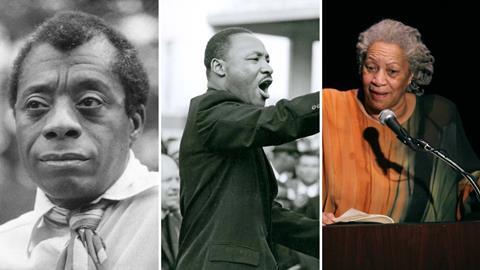This Black History Month, Rev Isaac Lawrence looks to the Bible and three famous Black figures for wisdom in creating a less divided world

About 17 years ago, I was standing in a queue in Nottingham city centre, waiting for my turn to enter a store. I was the only Asian person in the queue, which, on most days, wouldn’t have mattered at all. However, on this day, it marked a moment when I felt profoundly othered.
As I stood there, I noticed a woman approaching each person, attempting to catch their attention and ask if they would like to purchase a copy of The Big Issue. However, when she reached me, something inexplicable happened. She completely disregarded me, moving past without even acknowledging my presence. I felt a wave of emotions crash over me. I felt invisible, as though I didn’t belong or matter in that space.
On the outside
Being othered refers to the sense of being treated as an outsider, or different from the dominant or majority group. It can occur due to factors such as race, ethnicity, gender, sexual orientation, religion, disability, or any characteristic that sets an individual apart from the perceived norm.
It is a profoundly disheartening, emotional and often distressing experience that can evoke a range of feelings, from frustration and anger to sadness and isolation. It is a stark reminder of the biases and prejudices that persist in society, even in seemingly mundane situations.
Dr King, James Baldwin and Toni Morrison offer valuable insights on addressing racism
It is an us-vs-them way of thinking about human connections and relationships, one that looks at others and says: “They are not like me”, or: “They are not one of us.” Othering is a way of negating another person’s humanity and, consequently, those that have been othered are seen as less worthy of dignity and respect.
A biblical response
In the Old Testament, Leviticus 19:34 states: “The foreigner residing among you must be treated as your native-born. Love them as yourself, for you were foreigners in Egypt.” This verse underscores the idea of empathy and recognising the experiences of being outsiders.
Similarly, in the New Testament, Galatians 3:28 emphasises equality: “There is neither Jew nor Gentile, neither slave nor free, nor is there male and female, for you are all one in Christ Jesus.” This verse stresses the unity of believers in Christ, regardless of societal distinctions.
So how should people respond then othered? Matthew 5:44 tells us to: “love your enemies and pray for those who persecute you.” Romans 12:20-21 adds: “If your enemy is hungry, feed him; if he is thirsty, give him something to drink. In doing this, you will heap burning coals on his head. Do not be overcome by evil, but overcome evil with good.” Responding to negativity with kindness can have a transformative impact.
Learning from others
In the context of racism, Dr Martin Luther King Jr, the prominent civil rights leader, advocated for nonviolent resistance and love as a response to racism. He famously said: “Darkness cannot drive out darkness; only light can do that. Hate cannot drive out hate; only love can do that.” Dr King’s approach aligns with what the Bible teaches about responding with kindness and compassion.
In The Fire Next Time (Penguin) writer and social critic, James Baldwin, discusses the harmful effects of racism on both the oppressed and the oppressor. He emphasises the importance of confronting biases and acknowledging the shared humanity of all individuals. This mirrors biblical teaching on treating others as equals.
I felt invisible, as though I didn’t belong or matter in that space
Author Toni Morrison explored the complexities of race in her novels. In Beloved (Vintage Classics) she depicted the lasting impact of slavery on individuals and the importance of confronting painful histories. Her work underscores the significance of understanding the past in order to create a more just and inclusive future.
The Bible provides a foundation for responding to being othered with love, forgiveness and compassion. It emphasises the unity of all individuals in Christ and calls for empathy towards those who are marginalised. Prominent writers such as Dr King, Baldwin and Morrison offer valuable insights on addressing racism through nonviolence, self-reflection and confronting historical injustices. By combining these, we can navigate the challenges of being othered while promoting equality, justice and understanding.
The feelings associated with being othered are complex and deeply personal. They can range from negative emotions such as isolation, frustration and insecurity to positive emotions such as empowerment, solidarity and determination.
It is essential to acknowledge and validate these feelings and work collectively to create a more inclusive and empathetic world where everyone is accepted for who they are.




































No comments yet